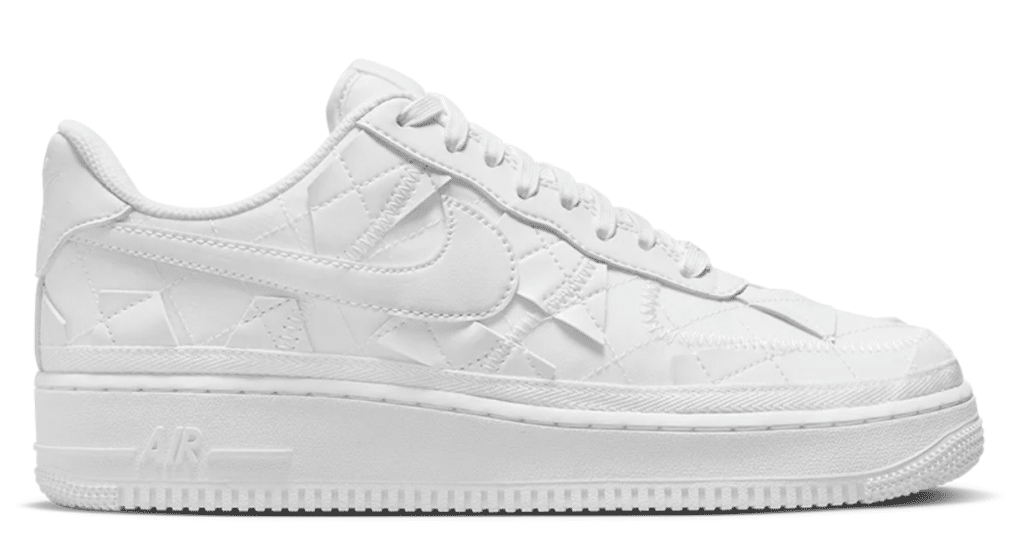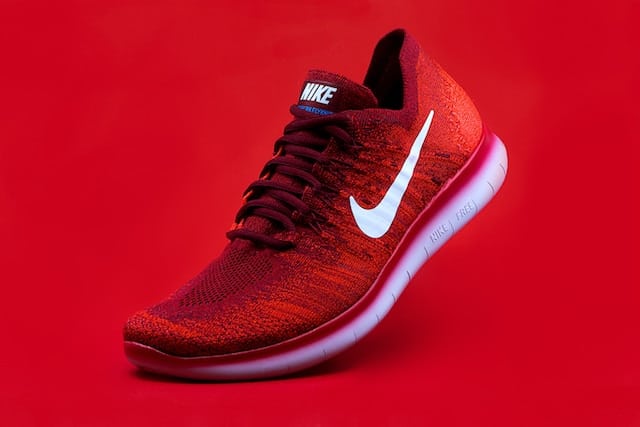Introduction – Is Nike Fast Fashion
Nike is an amazing success story in the area of sportswear evolving from a one-person sales company into a global sportswear and apparel brand. Its high profile puts itself in the scrutiny of the public who are concerned about the negative impact of fashion on the environment, carbon emissions, and landfill waste.

While the company shares some similarities with fast fashion brands, such as high product volume and frequent collection releases, its emphasis on performance-driven design and quality sets it apart. Nike’s primary focus is on athletic wear, footwear, and sports equipment, rather than solely trend-driven clothing.
Fast Fashion Characteristics
Fast fashion brands typically produce high volumes of products, release frequent collections, and rely on global supply chains to keep costs low. These practices have contributed to the negative reputation of the fast fashion industry, which includes excessive waste, pollution, and poor labor conditions.
The approach is characterized by designs move rapidly from the runway to stores, producing affordable and trendy garments that cater to consumers’ demand for the latest styles. This business model has become popular among many brands, leading to a constant influx of new products, shortened production times, and lower prices. However, fast fashion has been widely criticized for its negative environmental and social impacts, including excessive waste generation, pollution, and poor labor practices.
Examples Of Fast Fashion
Fast fashion is exemplified by brands such as Zara, H&M, and Shein, which are known for their rapid production cycles, inexpensive garments, and constant adaptation to the latest trends. Zara, for instance, has pioneered the fast fashion model by producing new designs and delivering them to stores within just a few weeks.
H&M follows a similar approach, offering affordable, trend-driven clothing with frequent collection turnovers. Shein, an online retailer, has gained notoriety for its extremely low prices and massive inventory, constantly updating its offerings to cater to the ever-changing fashion landscape. These brands epitomize the fast fashion industry, focusing on short-lived trends, low-cost production, and high volume sales.
Nike Does Not Look Like Fast Fashion
Based on these examples, Nike does not seem to fit the traditional definition of a fast fashion company, as it primarily focuses on athletic wear, footwear, and sports equipment rather than solely on trend-driven clothing. It shares some characteristics with fast fashion brands, such as producing a high volume of products, frequently releasing new collections, and utilizing global supply chains.
Nike’s Business Model and Practices
In recent years, Nike has been making efforts to improve its sustainability practices and reduce its environmental footprint. The company has implemented the “Move to Zero” campaign, aiming to achieve zero carbon emissions and zero waste in its operations. Nike has also been incorporating more sustainable materials, such as recycled polyester and sustainable rubber, in their products. Moreover, they have been investing in innovative technologies to reduce waste and improve manufacturing efficiency.
While Nike does not fit squarely into the fast fashion category, it shares some similarities with these brands, particularly in terms of product volume and release frequency. Nevertheless, Nike’s ongoing sustainability efforts and focus on performance products differentiate it from traditional fast fashion brands, which prioritize rapid trend turnover and low prices above all else.
Nike’s Sustainability Initiatives
Nike has made strides in improving its sustainability practices. The “Move to Zero” campaign seeks to achieve zero carbon emissions and waste in the company’s operations. Additionally, Nike has incorporated sustainable materials into its products and invested in innovative technologies for waste reduction and efficient manufacturing.
Example Product By Nike Geared At Sustainability

A prime example of this is their recent collaboration with Billie Eilish. Known for her commitment to environmental activism, Eilish would not have likely agreed to collaborate with a company that wasn’t making strides in sustainability.
In their joint venture, Nike and Eilish focused on creating a line that upheld the principles of sustainable fashion. The collection boasted products made from recycled materials and leveraged Nike’s move towards more sustainable practices. Additionally, the collaboration was designed with longevity in mind, with timeless styles that resist the typical fast fashion model of rapid obsolescence.
The Nike Air Force 1 (AF1) collaboration with Billie Eilish presents an exemplary rebuttal to the notion of Nike as a fast fashion brand. This specific model is a testament to sustainability and thoughtfulness in design, displaying a serious commitment to environmental responsibility.
The shoe is constructed with recycled synthetic leather patches on a recycled nylon base, demonstrating a practical application of reuse in material selection. This decision not only minimizes waste but also reduces the demand for new raw materials. The midsole is another marvel of sustainability, incorporating Nike’s innovative regrind technology, a process that repurposes manufacturing scraps into new products.
Key Differentiators Between Nike and Fast Fashion Brands
The main factors distinguishing Nike from fast fashion companies include its focus on performance, innovation, quality, and durability. Furthermore, Nike’s ongoing sustainability efforts demonstrate a commitment to environmental responsibility, which is often lacking in traditional fast fashion brands.

Conclusion – So Is Nike Fast Fashion?
No. We would say from the collective evidence that Nike is not like Zara, H&M, Shein. It is definitely a global corporation that is labor and capital intensive and makes use of global supply chains. However, in that it is like other corporations, rather than a fast fashion brand. In fact, it seems to be the opposite of fast fashion.
While Nike shares certain characteristics with fast fashion brands, its focus on performance products, quality, and sustainability differentiates it from the typical fast fashion model. As Nike continues to pursue sustainable practices, it has the potential to set a positive example for the rest of the industry.
